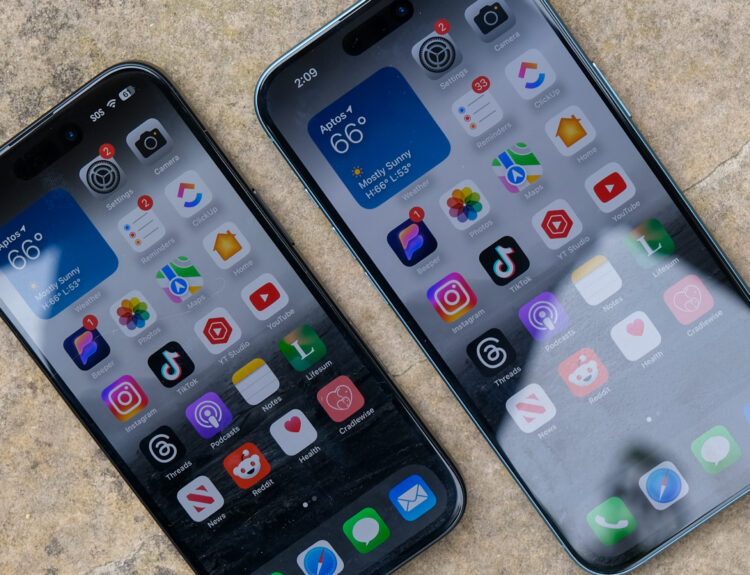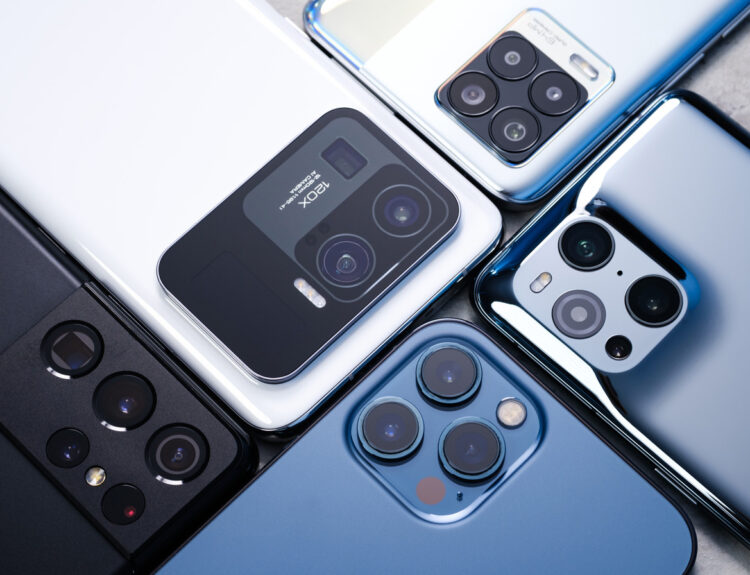We may receive a commission on purchases made from links.
There are plenty of reasons to buy used electronics. In some cases, the only available options are vintage tech, such as if you want to play old video games. Or maybe you’re shopping in an area, like stereo equipment, where vintage options are good choices, whether for performance reasons or because you can get a better deal on them. And sometimes, it’s just the best deal you can buy price-wise. Maybe it’s advertised as “used,” maybe it’s “open box” or “scratch and dent,” or perhaps it’s listed as “refurbished” or one of its synonyms, but they’re all variations on telling you that you’re not the first customer to touch the item since it left the factory.
Advertisement
Though there are a lot of good reasons to buy tech that isn’t brand-new, veering away from new items introduces a lot of risks. Sellers’ definitions of what terms like “refurbished” mean can vary wildly, and not every retailer treats its open-box returns the same, either. It’s not like there’s an industry standard, after all.
But there are ways to try to mitigate your risk when buying used electronics online. You can buy the items from places that have taken steps to ensure quality, or from marketplaces that have established standards for their secondhand sellers. You can even buy an extended warranty for extra peace of mind. So let’s take a detailed look at each way that you can protect yourself when buying used.
Advertisement
Amazon Resale isn’t always as good a deal as it looks
One of the most prominent vendors of used electronics and other used good on the internet is Amazon Resale, the arm of Amazon that uses the company’s storefront to sell opened customer returns at a discount. (Previously, it went by Amazon Warehouse Deals.) It sounds like a great idea, and the discounts are often significant. However, for electronics, the reality is a lot more complicated.
Advertisement
That’s because unlike the closeout arms of many other major retailers, Amazon Resale products don’t carry a manufacturer’s warranty. The “Frequently Asked Questions” section of Amazon Resale’s main page makes this perfectly clear: “Used products generally do not come with a manufacturer’s warranty, but all of our items are backed by Amazon’s 30-day return policy.” The use of the word “used” as opposed to “open box” or even “refurbished” is notable, as it carries a lot less of the suggestion of warranty support.
Look at it this way: Amazon Resale is, in Amazon listings, treated as a third-party seller, a distinct legal entity from Amazon. As a result, Sony’s authorized reseller list, for example, includes Amazon.com but not Amazon Resale. Since Amazon Resale isn’t an authorized reseller, there’s no warranty coverage available even though it’s functionally just Amazon’s way of selling off open-box inventory the way a big-box store would sell off “open-box” stock. If you’re buying from Amazon Resale, remember that you’re best off also buying a third-party warranty.
Advertisement
Amazon, eBay, and Walmart all have safeguards for third-party sellers’ used electronics
One complicating factor in buying electronics online that aren’t entirely new is the degree to which that terms like “used,” “open box,” “refurbished,” and so on are used interchangeably. It’s not as if there are industry standards establishing agreed-upon definitions for these words, so navigating how vendors use them can get a bit thorny. It’s one thing when you’re dealing with large retailers or specialty retailers with clear track records and policies, or that need to abide by certain conditions as authorized resellers of certain brands. But it gets a lot harder to navigate when you’re dealing with platforms that have massive networks of third-party sellers.
Advertisement
So some of these platforms have established clear standards for sellers to follow that should engender trust among customers: Amazon has the Amazon Renewed program, eBay has eBay Refurbished, and Walmart has Walmart Restored. All three offer some kind of enhanced protection, but eBay stands out as the clear leader in this area. Walmart and Amazon offer a 90-day return window, but eBay bundles in a one-year extended warranty from Allstate Protection Plans (formerly SquareTrade), which goes up to two years if the seller is an authorized reseller of the brand of the item being sold. And eBay has also banned sellers outside of the program from referring to their wares as “refurbished.” It adds some peace of mind that wasn’t there before.
Advertisement
Authorized reseller status is a key factor to look for
If you want to get the manufacturer’s warranty with a new electronics purchase — even if it’s new, but especially if it’s some form of used — then it’s key that you get it somewhere that’s explicitly an authorized reseller (sometimes referred to as an authorized dealer) of the manufacturer’s products.
Advertisement
In a lot of cases, the manufacturer’s website will have a list — sometimes a plain alphabetical list, sometimes a location-based search — of authorized resellers, or the vendor will proudly advertise its authorized reseller status. This can be complicated by some manufacturers saying they don’t provide warranty coverage for “open box” returned products. However, if you’re buying from an authorized reseller with a solid reputation that explicitly says its open-box items are covered by manufacturers’ warranties, like Best Buy or Crutchfield, you should be able to trust them.
What this means is that you need to keep yourself educated as a shopper and consider that your preconceived notions might contradict reality. “Penny auction” website DealDash isn’t an authorized reseller of its key electronics products, belying its high profile with its constant stream of TV commercials. Lesser-known specialty retailers are often authorized resellers, though, and they can often have sneaky good deals. For example, you may not have heard of Accessories4Less, but it specializes in refurbished and close-out deals on audio and home theater hardware, and is an authorized reseller of every brand it carries.
Advertisement
Extended warranties/protection plans are a key
Another way to try to ensure peace of mind when buying used electronics online is to secure an extended warranty or protection plan from a company that offers coverage for used items. This is easier said than done, as Asurion, one of the biggest players in protection plans and one of the most visible names, only offers its plans through retail partners.
Advertisement
If you need to get the plan separately, you need to go with a company like Allstate Protection Plans or Upsie that offer their plans as separate purchases and cover used electronics. Allstate is the bigger, more established name with the longer track record, but the companies’ user review scores on TrustPilot average out to being just 0.2 stars apart from each other, with Allstate averaging 4.1 out of 5 from 25,000-plus reviews and Upsie averaging 3.9 from more than 1,200.
For peace of mind, it may help that Upsie is a lot less ambiguous and much more straightforward about what it will cover, clearly mentioning used electronics throughout its website. “[Y]ou can buy a protection plan for your used or refurbished devices as long as your device has no damage, comes with at least a 30-day seller or manufacturer warranty, you purchased your device within the last 4 years,” reads Upsie’s FAQ page. Surprisingly, Upsie also makes it optional to show it a receipt if you’re on a monthly subscription plan.
Advertisement



